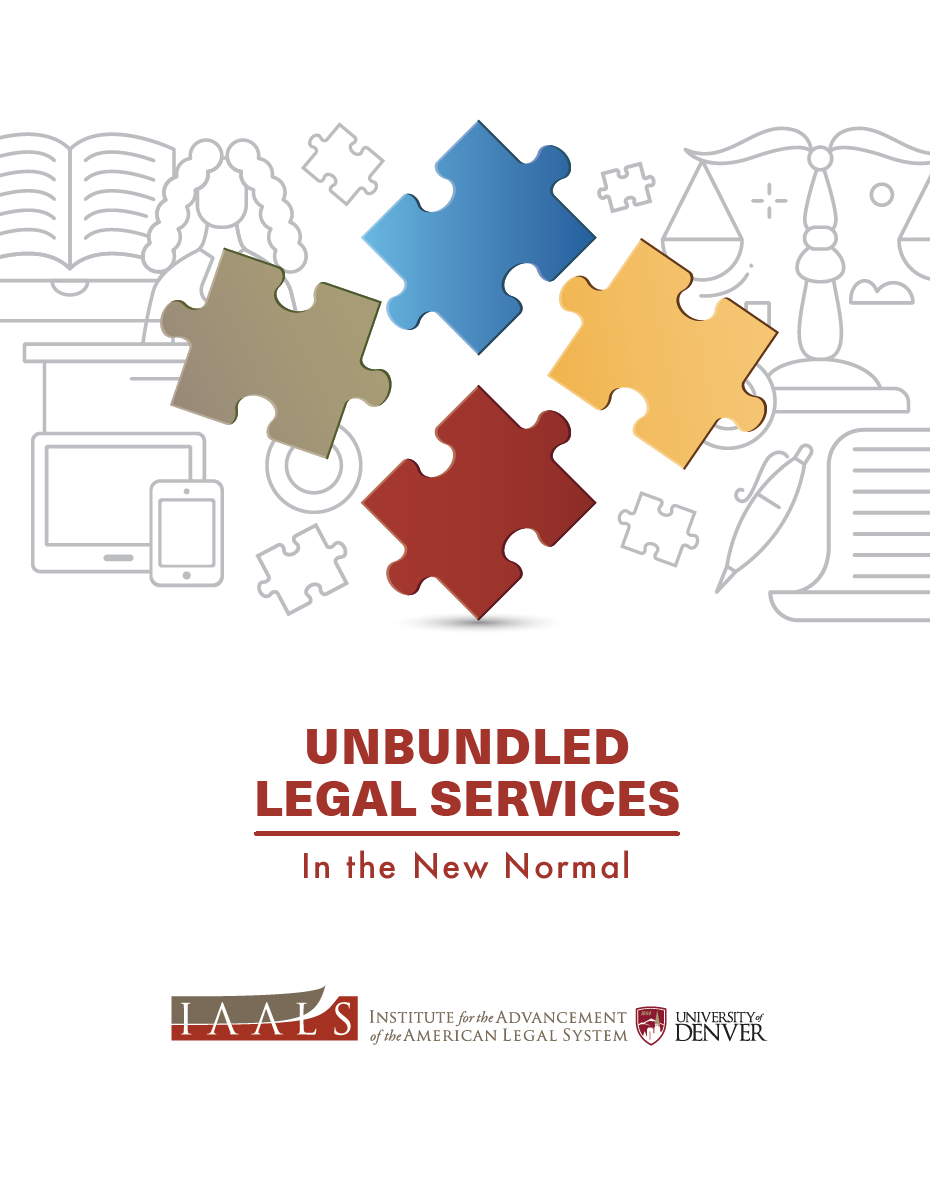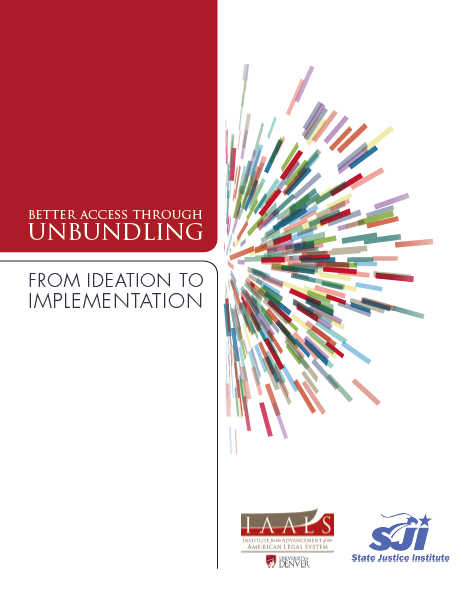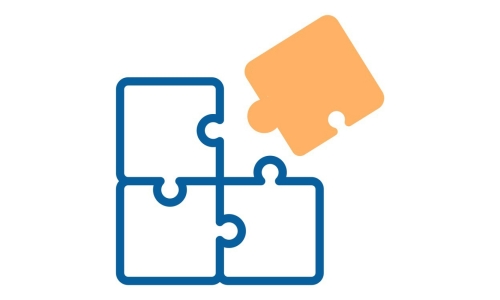The number of self-represented litigants in our state family courts is high—in some courts, upward of 80 percent of divorce and separation cases involve at least one party who is without a lawyer. And civil litigation follows a similar trend with 76% of cases involving at least one self-represented party. The primary driver of self-representation is the inability to afford a lawyer. But by and large, litigants want lawyers.
Unbundled legal services, also called limited-scope representation, is a service delivery model that holds promise for the growing numbers of self-represented litigants. IAALS advocates for and publishes resources to aid in the implementation of unbundling in order to both increase access to justice and also to provide new and established attorneys alike with an innovative business model for better serving clients.
Objectives:
- Encourage legal practitioners to implement unbundled legal services in their practice.
- Encourage other justice system stakeholders to support the widespread implementation of this service model.
- Create an ongoing dialogue among justice system stakeholders to support sharing and learning toward implementation of the unbundled legal services model.

Latest Publication:
Unbundled Legal Services in the New Normal
Click here to read and download.
A lawyer providing unbundled legal services works with clients only on certain legal tasks instead of taking on the entire case, based on what the clients can afford and need help with the most. While this model has increased in popularity over the years, there continue to exist several challenges with its implementation. This report details the key discussion points from the Unbundled Legal Services in the New Normal conference, focusing on how the pandemic helped normalize digitization and the use of technology for legal service providers generally—and how to further advance unbundled legal services nationwide.

Unbundling Resource Center:
The collaboration of stakeholders and thoughtful strategic planning is vital to increasing the use of unbundled legal services. These resources highlight areas for potential collaboration among stakeholders in the system as well as tailored strategic plans for increasing the visibility, adoption, and use of unbundling, with plans available for jurisdictions is different stages of implementation.
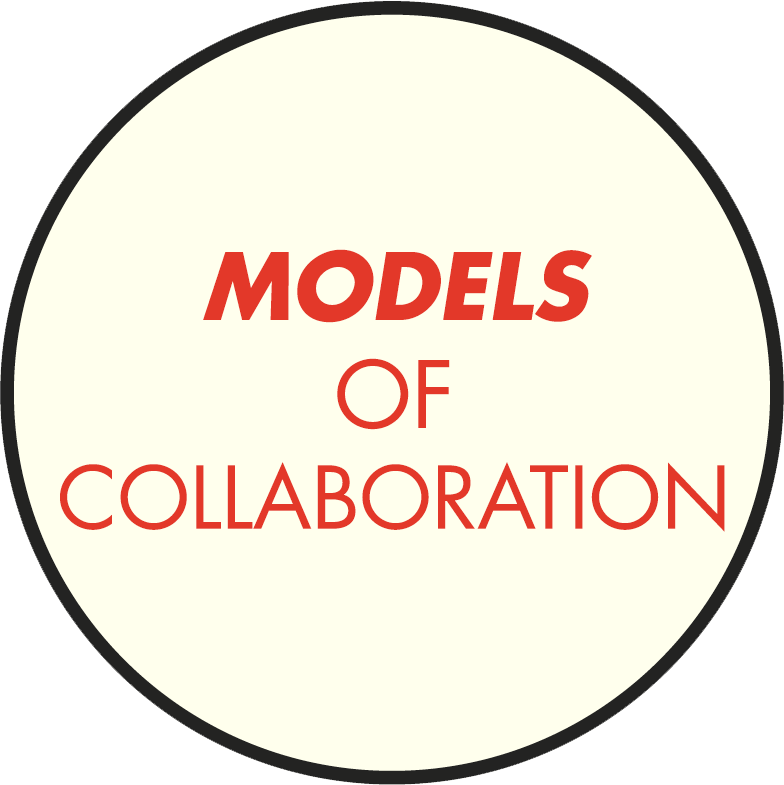 |
 |
For unbundled legal services to be effective, many stakeholders need to be part of the equation. Courts and rulemakers need to support it, lawyers need to offer it, and consumers need to know the options available to them. These resources are tailored to the groups who need information about unbundled legal services and how to implement them, offer them, or seek them out.
 |
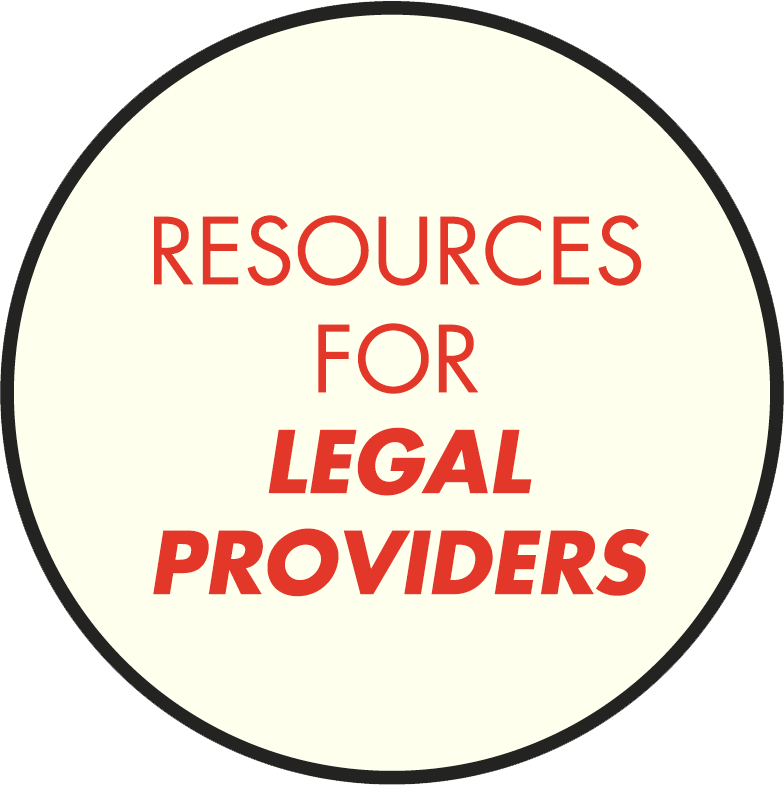 |
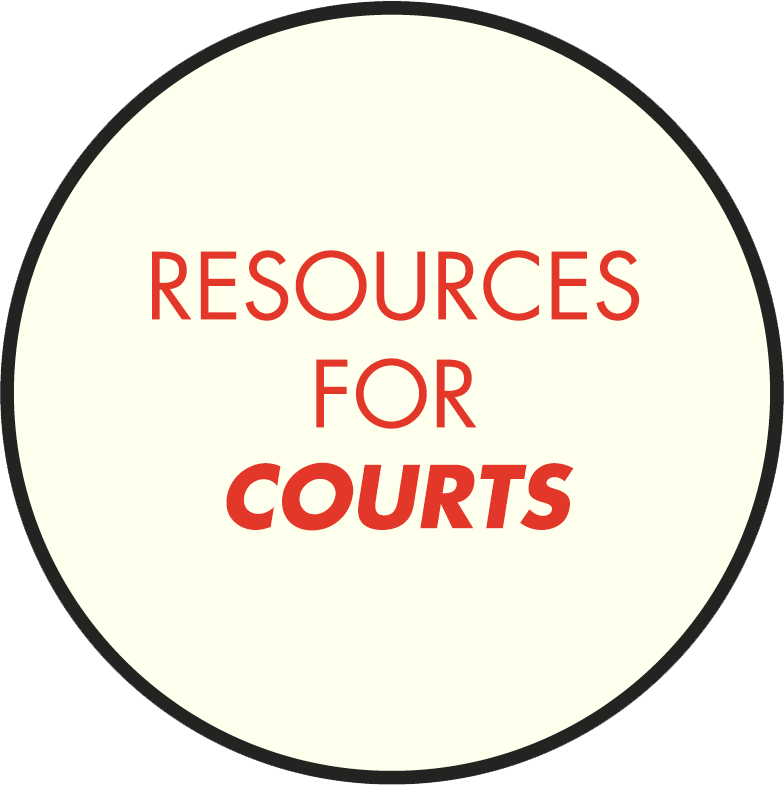 |
|||
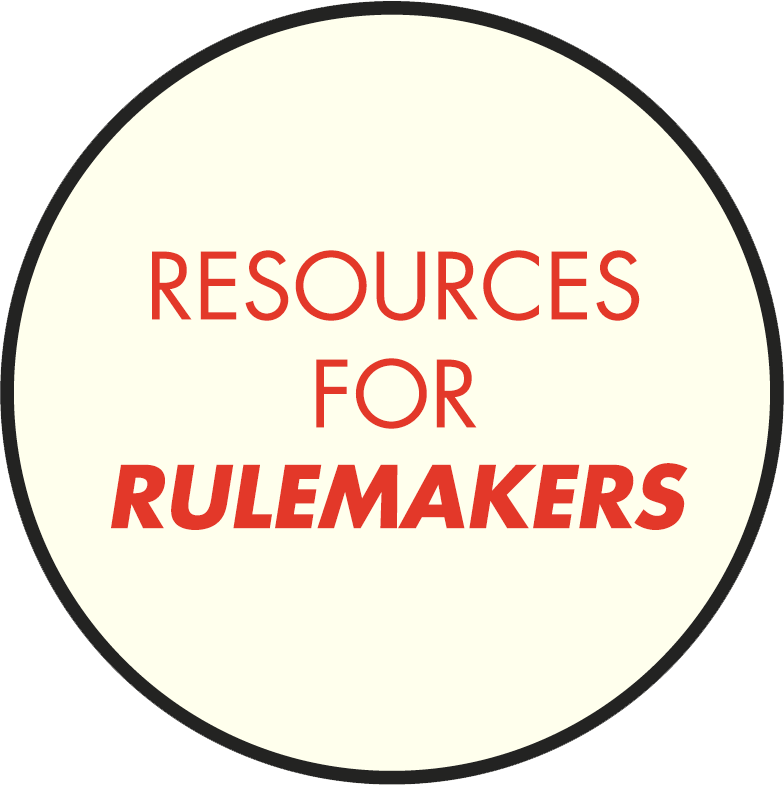 |
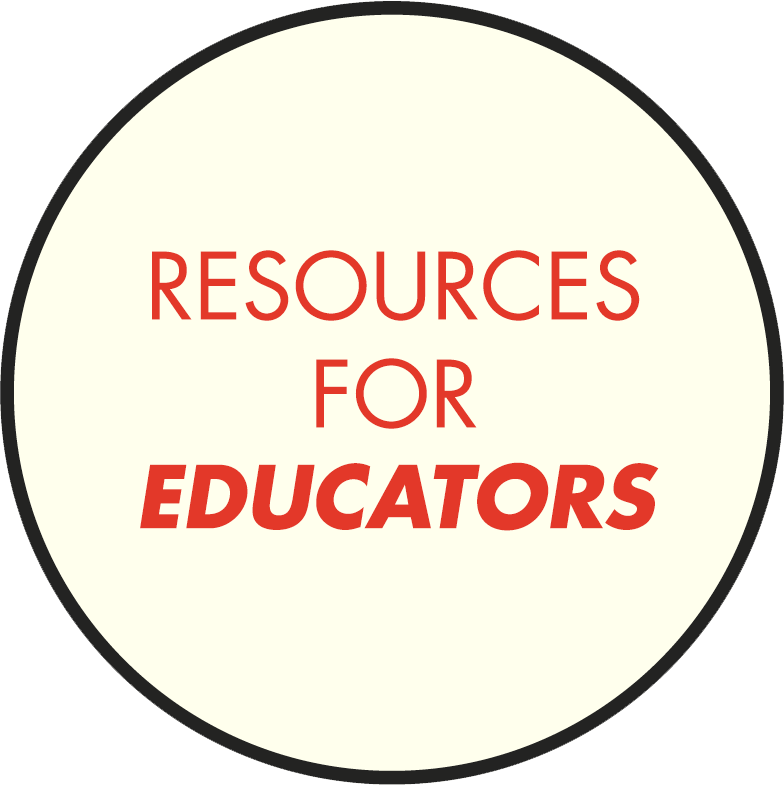 |
||||
Other Publications, Guides & Toolkits:
Better Access through Unbundling: From Ideation to Implementation
Click here to read and download.
In October 2017, IAALS partnered with the American Bar Association Standing Committee on the Delivery of Legal Services to host a national two-day conference on advancing implementation of the unbundled legal services model. The event brought together diverse stakeholders from 26 states, Washington D.C., and Canada to share perspectives, exchange best practices, and chart paths for deeper collaboration. This report provides a summary of the recommendations and solutions discussed, which are designed to add to the strengthening foundation for widespread implementation of unbundled legal services.
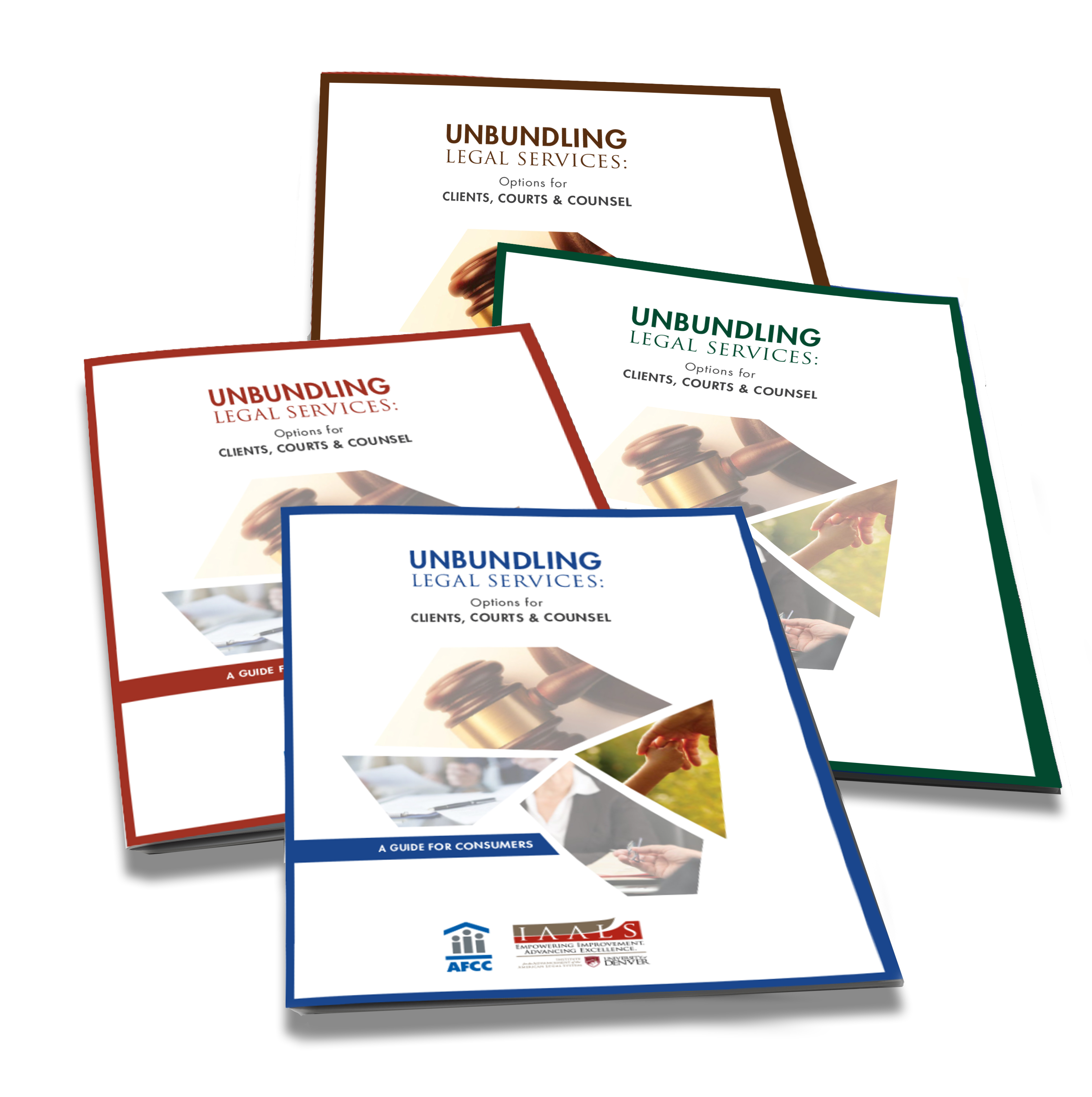
In 2015, IAALS, in partnership with the Association of Family and Conciliation Courts (AFCC), created unbundling guides and toolkits for consumers, non-legal professionals, lawyers, and court leadership. Each provides information, guidance, and additional resources tailored to the specific stakeholder.
- A Guide for Consumers is designed for parents seeking affordable legal assistance in family separation cases.
- A Guide for Non-Legal Professionals is designed to give information about the benefits of unbundled legal services and alternative processes that families can take.
- A Guide for Lawyers amasses helpful resources into an easily accessible Frequently Asked Questions format, centered on the fundamentals of unbundled legal services.
- A Toolkit for Court Leadership is designed to provide judicial leaders quick access to information on unbundled legal services and ways to promote its availability and use.

Project Team:



More about the Project:
There are many people going through divorce and separation, or any number of civil disputes, who do not have the financial means to hire a lawyer. IAALS' Cases Without Counsel study findings, and research undertaken by others, suggest that outcomes can be impacted when litigants are unrepresented. The unbundled legal services model provides litigants with the option of hiring a lawyer for only certain parts of the process, perhaps just the most difficult and confusing portions. This arrangement gives litigants access to affordable legal services and gives them certainty with respect to costs.
The unbundled model also provides attorneys with a new service delivery model—one that offers attorneys the opportunity to grow a new client base. Specifically, an unbundled model attracts litigants who would not (and could not) otherwise hire an attorney. Unbundling also allows attorneys to stay competitive in a changing legal services market, while also meeting the evolving needs of court users.
While unbundled legal services benefit both lawyers and litigants, the model has yet to reach widespread implementation around the country. Through research, recommendations, and stakeholder convenings, IAALS is working with national organizations and leaders in the field to provide guidance to unbundled practitioners and others, facilitate learning among practitioners, and create new partnerships and opportunities for collaboration.

Recognizing that providing stakeholders with an opportunity to share best practices and lessons learned is a key component of advancing unbundling, IAALS has hosted three national conferences to date.


